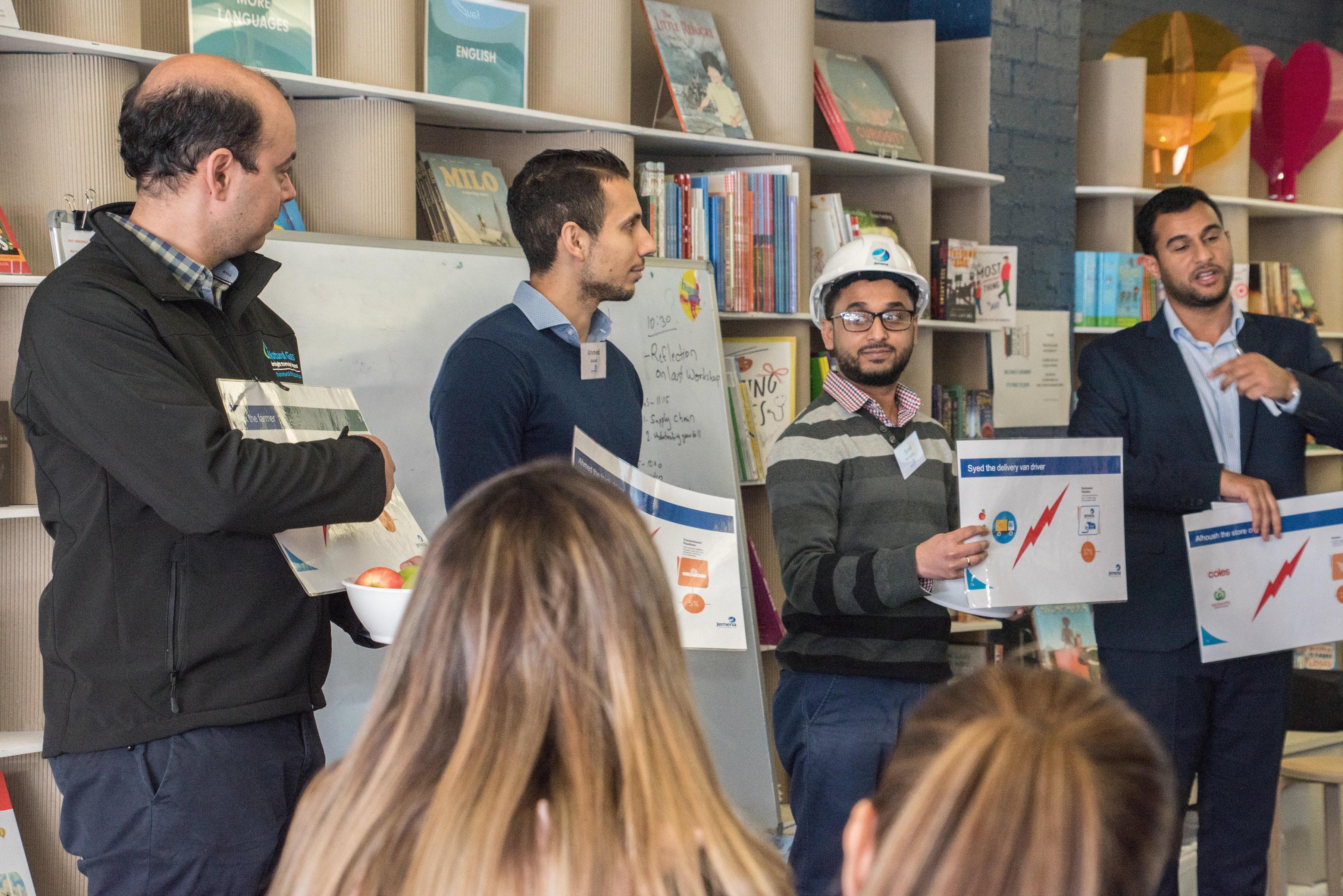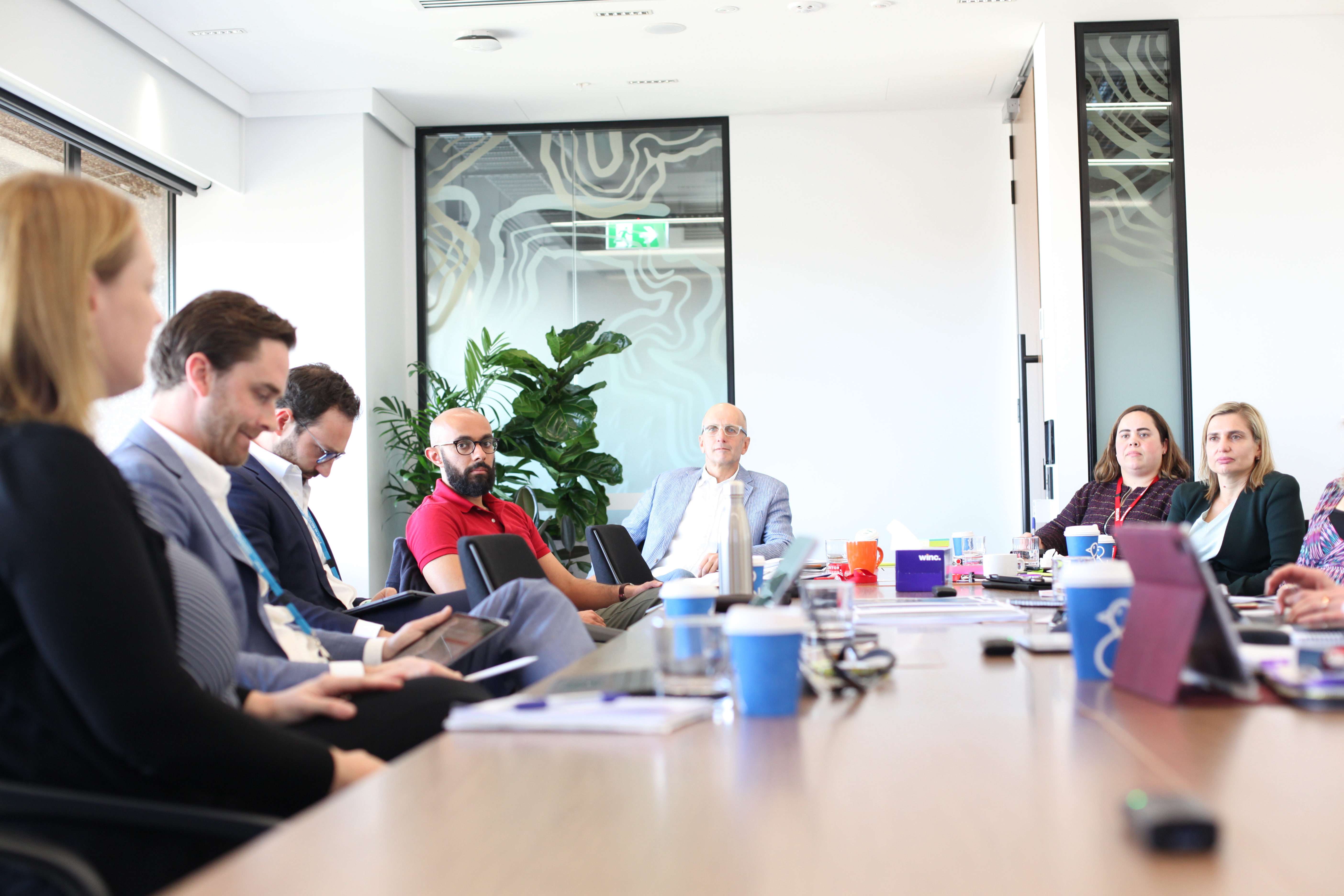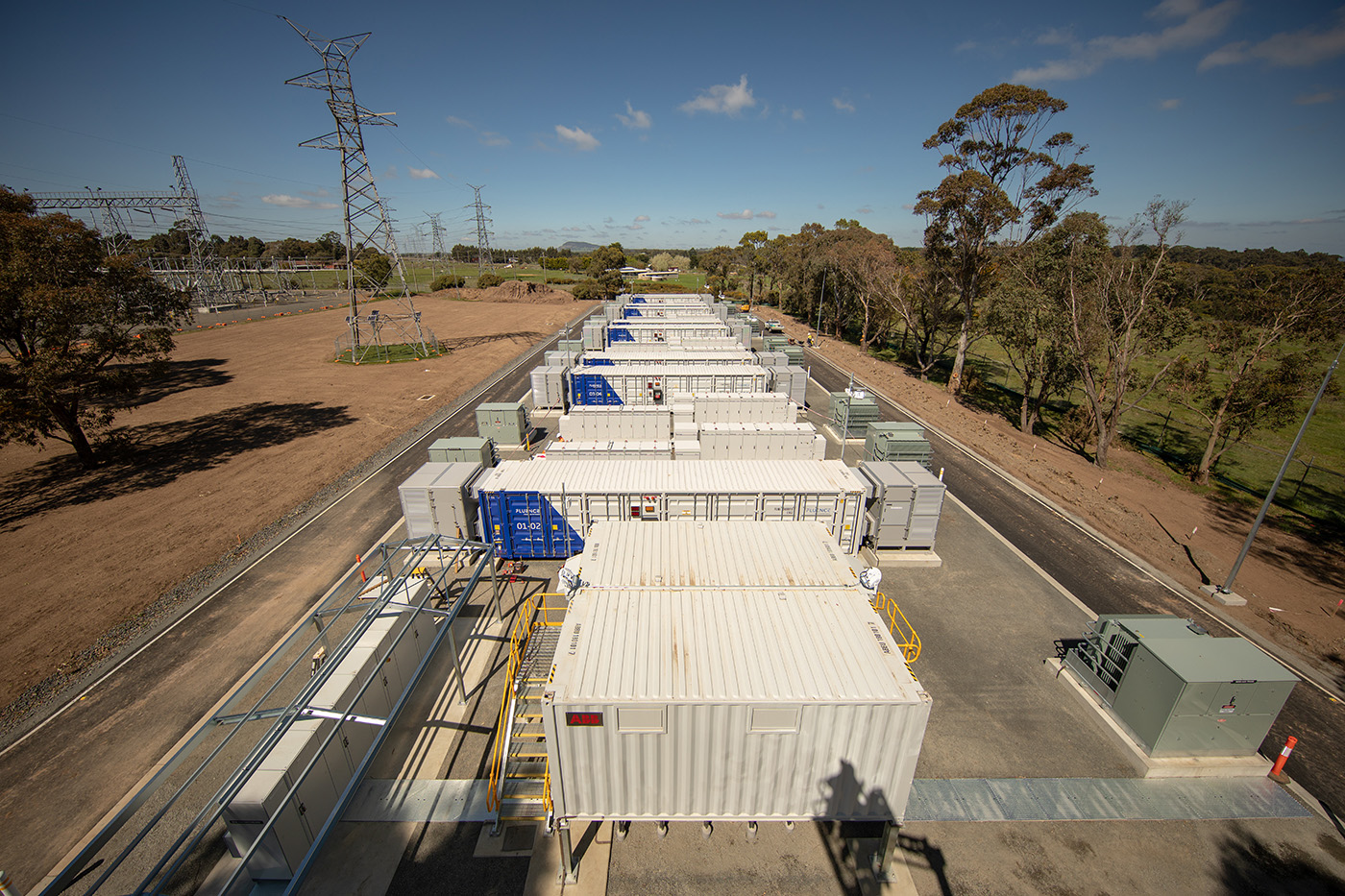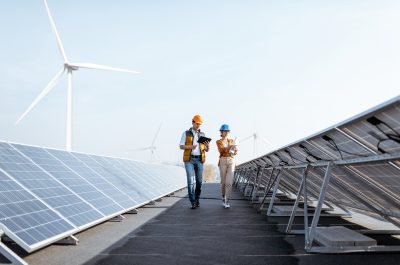Spotlight on Innovation and Customers
Australian network businesses are working to deliver a smarter energy grid at lowest possible cost for customers. How do we modernise and at the same time keep prices down? By looking for new and innovative ways to tackle problems while engaging with customers to learn what they really want.
Innovation and customer engagement are key to delivering our energy future and three years ago, Energy Networks Australia conceived two awards to recognise the best examples of this in our industry. Tonight, we announce the 2019 winners of these awards – businesses that are striving to deliver better outcomes and better value.

Jemena’s Gas Deliberative Forum
Consumer Engagement
Run in partnership with Energy Consumers Australia, the 2019 Consumer Engagement Award entries reflected a significant lift in consumer engagement activity, with more innovative approaches to engaging with customers.
Finalists for the consumer engagement award are Horizon Power, Jemena, SA Power Networks and Powerlink.
The award aims at highlighting best-practice consumer engagement by networks from around the country.
Energy Consumers Australia CEO, Rosemary Sinclair, chaired the independent judging panel and said rebuilding trust with consumers must start with embracing them as partners in change.
Ms Sinclair said it required doing everything possible to inform decisions with consumer preferences and views.

Ausgrid’s revised regulatory proposal
Horizon Power (WA) – Solar Incentives SchemeHorizon Power’s Solar Incentives Scheme is investing $1.07M to co-fund up to 900kW of community-owned solar in eight remote Aboriginal communities. Co-designed with Aboriginal corporations during 12 months of face-to-face community engagement, the feedback was that while communities knew solar would save money, it was expensive upfront, a big technical decision, and they weren’t sure whom to work with. Based on this community feedback, Horizon Power created the scheme offering each community a grant (30 per cent capped at $100,000) along with engineering and project management support. Jemena (NSW) – Gas Networks Deliberative ForumDeveloping the engagement strategy for Jemena’s 2020 Plan started early, two years ahead of the submission. Jemena worked to understand how customers wanted to engage and what topics were important to them. Jemena held multiple sessions with the same groups building their capacity to challenge the company and debate complex topics. The engagement strategy included providing individual bill impacts and overall costs, which allowed customers to make meaningful decisions, helping shape Jemena’s plans and the network’s culture. Jemena (Vic) – People’s PanelJemena created a representative citizen’s jury – the People’s Panel – to involve household customers in complex decision making, in particular, asking them to challenge and change their plans. Through extensive expert presentations and collaborative discussions, the People’s Panel confidentially provided a series of recommendations that were incorporated in Jemena’s Draft Plan. SA Power Networks (SA) – Community EngagementIn developing its 2020-2025 Tariff Structure Statement (TSS), SA Power Networks engaged with customers and stakeholder representatives to develop fit-for-the-future tariffs that had the support of stakeholders and addressed key challenges influencing reliability and cost for customers. By working collaboratively over time with a wide group of stakeholders, SA Power Networks constructively engaged on a tariff setting strategy. Powerlink (Qld) – 2023-27 Revenue DeterminationWith its customers, Powerlink co-designed the engagement approach for its 2023-27 revenue determination process. It worked closely with its customer panel to develop the agenda and structure of the workshop, which involved 40 participants, including customers, advocates, stakeholders and members of Powerlink’s Board and Executive Team. Powerlink’s customers and stakeholders played a direct role in developing a process which will influence investment decisions and planning. |
Industry Innovation Award
The Industry Innovation Award recognises ground-breaking initiatives, technology, services or solutions that benefit customers and help us to share learnings across the sector.
Victorian Energy Minister, the Hon Lily D’Ambrosio MP, will present the award tonight.
Shortlisted networks include ATCO, ElectraNet and Power and Water.
The energy sector is undergoing the most momentous change in its history.
This transformation is all encompassing – from the integration of renewables, to storage, to system and market design.
Networks are creating a smarter grid, giving customers more control over their energy use and encouraging better management of electricity demand.
Finding innovative solutions to problems is a big part of creating a smarter grid for the future.

AusNet’s Ballarat Energy Storage System
ATCO – Clean Energy Innovation HubATCO has created the first ‘green’ hydrogen (zero-emissions fuel) in Australia through its Clean Energy Innovation Hub. It is an industry-leading research and development facility for testing different combinations of clean energy technology including photovoltaics, batteries, gas-fired turbines and the production, storage and end-use of ’green‘ hydrogen in a ’living lab‘ micro-grid setup. Pure ’green’ hydrogen is stored in a high-pressure storage vessel then distributed within the micro-grid as a blended fuel for normal consumption, as a direct fuel for testing and for back-up power to a residential hybrid energy home. ElectraNet – Dalrymple Battery Energy Storage ProjectThe Dalrymple 30 MW, 8 MWh Battery Energy Storage System (BESS) is the first transmission grid-connected battery in the National Electricity Market providing regulated and competitive market services. The project involved the development of a first-of-its-kind commercial model to support the provision of regulated reliability and security services alongside competitive market services. ElectraNet navigated the NEM registration, licencing and connection processes and then created the largest autonomous regional micro-grid development to date, co-optimised for both grid-connected and islanded operation with 100 per cent renewables. Power and Water (NT) – Darwin’s DFA TrialPower and Water commissioned six trial distribution fault anticipation (DFA) devices on its worst-performing feeders that analysed the discrete changes in system parameters, alerting about developing faults. The project challenged conventional beliefs of traditional fault behaviour and feeder performance, in particular, the belief that bat-related activity is sporadic and transient, making it largely financially unviable to remediate. |
Further details about the awards, including members of the independent judging panels, can be found here.


